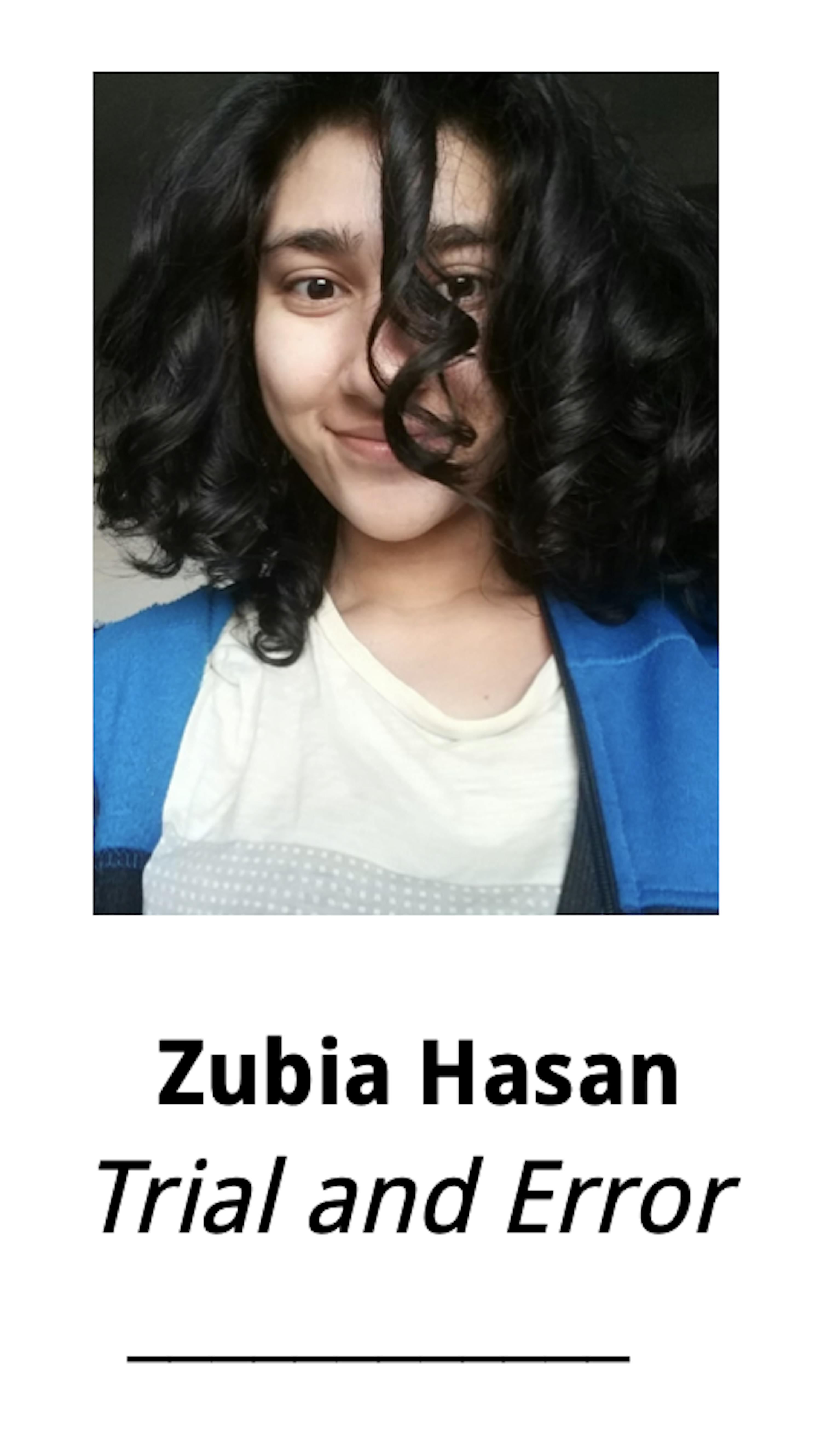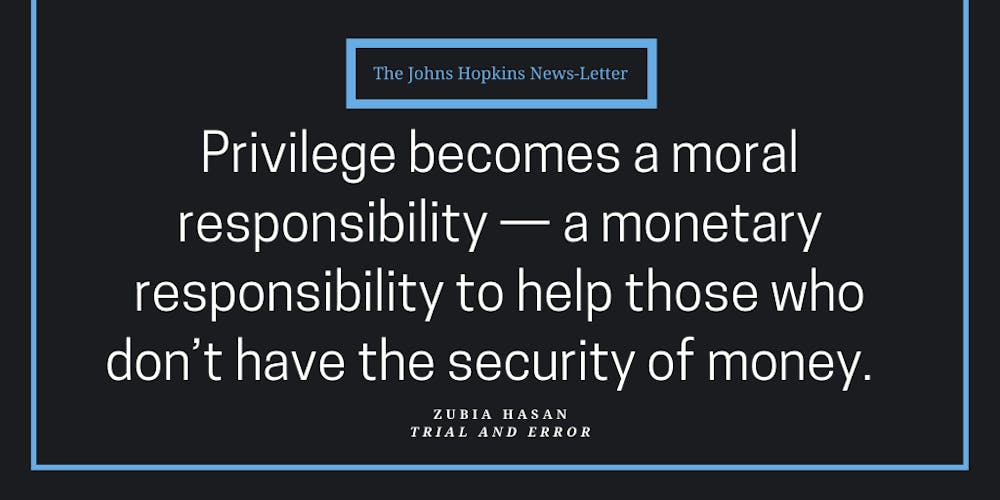
It is time to stop pretending that finances do not matter. That America is a land of equal opportunity. That anywhere in the world is a land of equal opportunity. We have heard that “with great power comes great responsibility,” but never that with money comes the greatest responsibility of all.
One of my favourite concepts in Islam is about money. It is said that if you are rich, angels will hold you accountable in your death — mainly that they will ask you what you did with your money in this life. Did you help the poor, the orphans or the less fortunate? When I was young and complained about my mother giving away our jewelry to servants, mama would remind me, “Allah poochay ga” (God will ask you).Whether you believe in God or not, everyone should live their life as if the money they spend is going to be accounted for — because money is only ethical when we spend it ethically, responsibly and morally.
Never has this been more true than with the coronavirus pandemic. Never have the colours of privilege risen higher and higher. Never has it been so clear that the world is unfair for poor people — that there is no such thing as meritocracy in a system where relative struggles are so vast so wide — that for some this virus only poses problems of boredom, while for others it’s about survival.
And it is the survival of the richest. It’s not just access to healthcare and testing kits, it’s everything. It’s who can afford to work from home, who doesn't earn a daily wage, who owns a home, who has to pay rent, who can afford a laptop, who can afford a house big enough with space enough that you can adequately study. It’s everything. It’s every aspect of life that is different for people who have money and people who don’t. And these differences are just the tip of the iceberg. And they always existed, these discrepancies in the system were always there — we just only began to see them during the times of coronavirus.
Look, almost everybody is guilty of this. I am certainly guilty of this. I get to be at my friend’s house while the pandemic rages on. I get as much food as I want and I know that if worst comes to worst, I will always have people who can bail me out. For me, survival is not even a question.
My privilege disgusts me and it should disgust you too. Why do I get to be safe while millions back home in Karachi don’t? Why do I get to have my own room when millions have families far, far bigger than mine enclosed in rooms smaller than mine? It doesn’t add up. I have done nothing in my life to deserve it. And here’s the catch: Most people at Hopkins don’t deserve the privilege that wealth brings. Nobody deserves that privilege, but we get it all the same because that is the way the world works. And so this privilege becomes a moral responsibility — a monetary responsibility to help those who don’t have the security of money.
There are also levels of privilege. According to a much wealthier environment like Hopkins, I, as a student on significant financial aid, am not at all wealthy. But I am still privileged — I am much, much better off than many of the daily wage workers in Pakistan who depend on the 100 rupees a day to buy food for family. And that is the sort of relative privilege I am talking about. In my case, I can’t help the people in Pakistan much from America other than by sending money that I otherwise would have spent on buying myself “treats” like hair and skin products on particularly bad days. Don’t get me wrong, it is okay to treat yourself, but I think, in a global crisis like this, perhaps those things can be put aside.
So donate, donate, donate. You don’t need hair products, you don’t need skin products, you don’t need those clothes, you don’t need so many of the things you have and this is money that could be saving someone's life right now. So cut out these expenses and replace them with donations. Donations are one way — and a more impersonal way of helping. Those who absolutely cannot donate can use the privilege of being healthy and able-bodied to shop for the elderly and immunocompromised. And if you cannot do any of this but you have the privilege of being safe in a home right now, then perhaps acknowledging the many inequalities that exist in this world can be enough.





